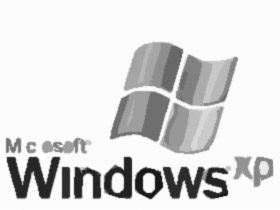
by medicaltechont | Oct 5, 2013 | e-Health, Software, Technology
The computer software company Adobe has been hacked, potentially compromising the data of 2.9 million customers, the company revealed on Thursday.
Adobe said “sophisticated attacks” had been carried out “very recently”.
“Our investigation currently indicates that the attackers accessed Adobe customer IDs and encrypted passwords on our systems,” said Brad Arkin, chief security officer at Adobe.
“We also believe the attackers removed from our systems certain information relating to 2.9 million Adobe customers, including customer names, encrypted credit or debit card numbers, expiration dates, and other information relating to customer orders.”
Arkin said he did not believe the attackers had removed decrypted credit or debit card numbers from its systems.
“We deeply regret that this incident occurred,” he said. Arkin did not specify the level of encryption of the data stolen.
Read more
[polldaddy poll=7451986]

by medicaltechont | Sep 21, 2013 | Software, Technology
But it’s not only in politics and business that the wisdom of open can be challenged. Most of us would like if Apple allowed us users a bit more control over our smartphones, sure. But Google’s commitment to Android’s openness means that smartphone manufacturers are free to slap their own user interfaces on top of the platform, often packed with widgets and other pre-installed apps. For savvy users, stripping away the junk isn’t much of a problem, but many presumably just live with it. Here you could argue that the initial openness leads to a worse experience for the user at the end of the line.
Read more

by medicaltechont | Aug 12, 2013 | Hardware, Software, Technology
Microsoft’s XP operating system is still used on more than a third of the installations out there, according to figures from Net Applications. Is it really still that popular?
XP was released in August of 2001, more than a decade ago. It got a new lease on life when its successor, Vista, was declared — at least initially — a disaster back in 2006.
On Friday, figures from Net Applications (see graph at bottom) showed XP with a robust 37.74 percent of all Windows and Mac OS installations worldwide, down only slightly from 38.31 percent in April.
Read more
by medicaltechont | Oct 27, 2012 | lasers, Technology
DERMATOLOGISTS are good at spotting unusual bits of skin that might or might not be cancers. Testing whether they actually are, though, is quite literally a bloody pain. For a piece of skin to be identified as malignant or benign it must be cut out and sent to a laboratory for examination under a microscope. But a team of researchers led by Rainer Leitgeb, a physicist at the Medical University of Vienna, hope to change that. As they describe in Biomedical Optics Express, Dr Leitgeb and his colleagues are exploring a technique called optical coherence tomography (OCT), which they think will allow skin cancer to be diagnosed in situ.
OCT is a form of optical echolocation. It works by sending infra-red light into tissues and analysing what bounces back. The behaviour of the reflected rays yields information on the structures that they collided with. That, Dr Leitgeb hoped, could be used to generate a map of features just beneath the surface of the skin. Similar technology has been employed for nearly two decades by eye doctors and Dr Leitgeb felt that, with a bit of tinkering, it should work for skin as well.
Read more

by medicaltechont | Oct 10, 2012 | e-Health, eHealth, Healthcare, Hospitals, Ontario, Technology
The case for electronic medical records is compelling: They can make health care more efficient and less expensive, and improve the quality of care by making patients’ medical history easily accessible to all who treat them.
Small wonder that the idea has been promoted by the Obama administration, with strong bipartisan and industry support. The government has given $6.5 billion in incentives, and hospitals and doctors have spent billions more.
But as health care providers adopt electronic records, the challenges have proved daunting, with a potential for mix-ups and confusion that can be frustrating, costly and even dangerous.
Some doctors complain that the electronic systems are clunky and time-consuming, designed more for bureaucrats than physicians. Last month, for example, the public health system in Contra Costa County in California slowed to a crawl under a new information-technology system.
Read more
by medicaltechont | Sep 22, 2012 | Canada, e-Health, emr, Software, Technology
TORONTO – The Ontario government has spent nine years and billions of dollars trying to make its troubled eHealth program work.
And despite repeated assurances from the government, that progress is being made, many doctors still struggle to get timely access to basic medical records and patients continue to face needless risks and treatment delays the program has failed to deliver what the public was promised – efficient access to electronic health records.
One Burlington family doctor became so frustrated, he hired college students to see if they could help him fix the electronic mess the government left in his office.
They did.
He was able to easily and inexpensively turn unfriendly electronic patient information programs into a helpful tool he can actually use when sitting in front of a patient.
But Dr. John Holmes said that while one eHealth Ontario official showed up at his office to see what he’d done, the organization clearly wasn’t interested in learning from his experience.
As a frontline health care provider and as a taxpayer, that indifference doesn’t sit well with Holmes.
Read more





